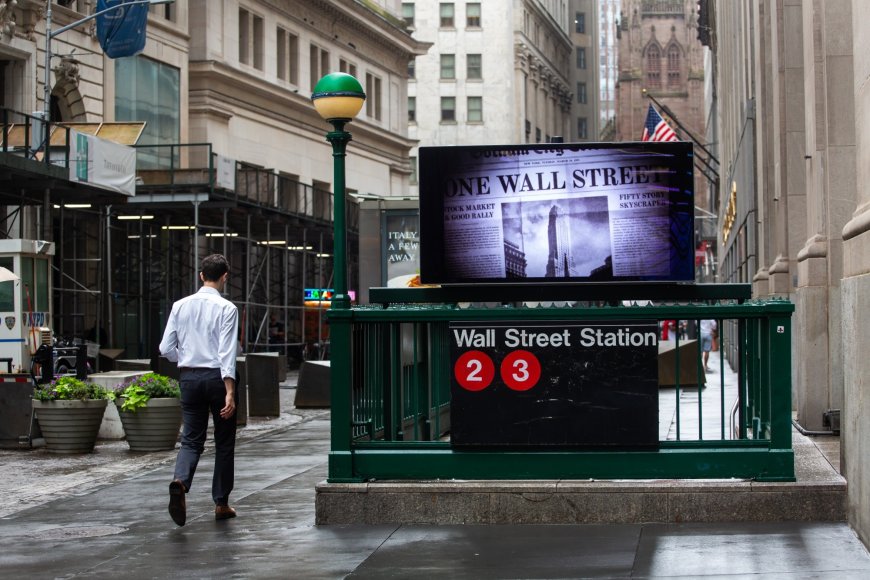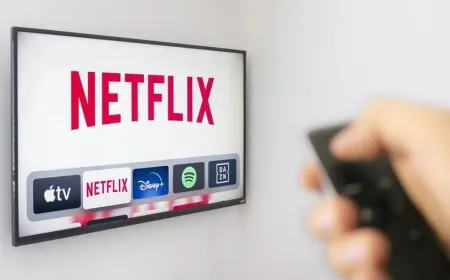Wall Street Faces New Challenges: Rising Borrowing Costs and Middle East Tensions
Wall Street reacts to higher borrowing costs and escalating Middle East tensions. Stay updated on the latest market shifts and geopolitical concerns.

The cost of borrowing money in the U.S. is going up because of what Jerome Powell said. Also, people are worried about what's happening in the Middle East.
As the day begins on Wall Street, there's a feeling of getting ready. The cost of borrowing money in the U.S. is getting higher. This is because the person who helps decide about money, Jerome Powell, talked about it. He said this is because the economy is strong and there are not many people looking for jobs. This means they might make it a bit harder for people and companies to borrow money so that prices for things don't go up too quickly.
At the same time, people are watching closely what's happening in the Middle East. There's a lot of trouble there, especially in a place called Gaza. Israel is doing something very big there. They even hit a special building where people were trying to be safe. This shows that they are getting ready to send soldiers into Gaza soon.
Robert Pavlik, who knows a lot about money, said, "It's good news that they won't make borrowing more expensive in November." But he also said that borrowing might still become a bit more expensive later because the economy is still strong and prices are going up.
Lorie Logan, another person who knows about money, said that because the costs of borrowing have gone up and the numbers in the reports are not bad, the people in charge of money can take their time to decide what to do next.
A big company that looks at what's happening with money, BofA Global Research, thinks that the U.S. government will decide to make borrowing a bit more expensive in December, not in November like some people thought before.
People will also be listening to what other important people who take care of money, like Patrick Harker and Loretta Mester, have to say. But after this week, they won't be saying much because they are going to have a time where they don't talk to the media.
There's something called the 10-year Treasury yield. It's like a score that shows how much the government has to pay when they borrow money for ten years. This score went up a lot and even went past 5%, which is something it hasn't done since a long time ago in 2007. Right now, it's a bit lower than that, but still quite high.
People who guess what will happen with borrowing costs say that it's almost 99% sure that the government won't change the cost of borrowing in November. But they think there might be a pause in December, with a 75% chance.
On Thursday, the big numbers that show how well the big businesses are doing went down by almost 1%. If they stay like this, it will be a week where they didn't do very well.
Some companies that work with oil and machines did their numbers. One of them, SLB, did better than what people thought, but still, the amount of money people want to give for their shares went down by 2.6%.
At a certain time, before the day starts, people look at how the shares of big businesses are doing. Right now, the Dow, which is a special way to look at all these big numbers, is down by 110 points. The S&P 500, which is another special way to look at them, is down by 16 points. And the Nasdaq 100, which looks at some of the most important businesses, is down by 68 points.
There are also companies that make things that use the sun to make energy. One of them, SolarEdge, said that they will not be making as much money as they thought in the last part of the year. Because of this, people don't want to give as much money for their shares, so they went down by a lot, 30.1%. Other companies like Enphase Energy and First Solar also didn't do as well, going down by 14.9% and 3.6% respectively.
A company that makes special machines for doctors, Intuitive Surgical, didn't do as well either. The amount of money they made was less than what people thought, so their shares went down by 5.5%.
But one company called Comerica, which takes care of money in one part of the U.S., did a bit better. They said that even though they might not make as much money from the interest people pay them, they are still doing okay, and because of this, people want to give them more money for their shares, so they went up by 1.2%.
Also Read: Stock Market Sees Small Gains as Interest Rates Rise































































